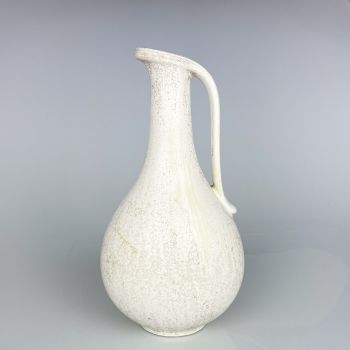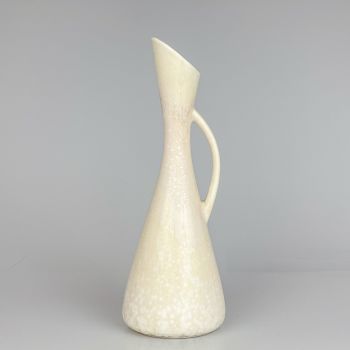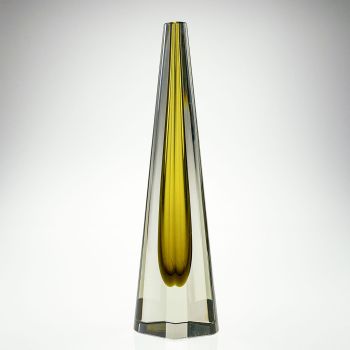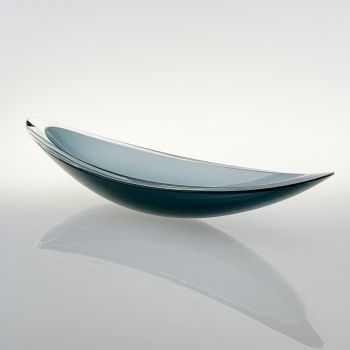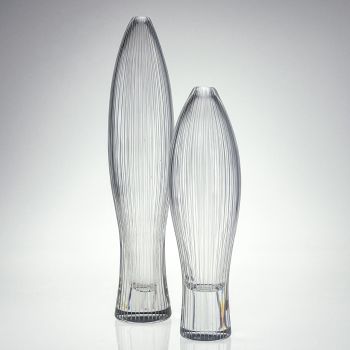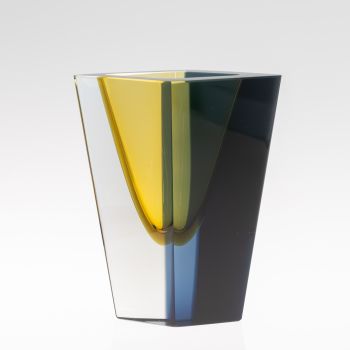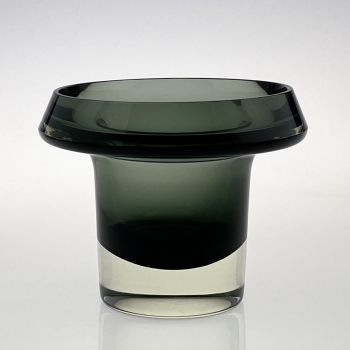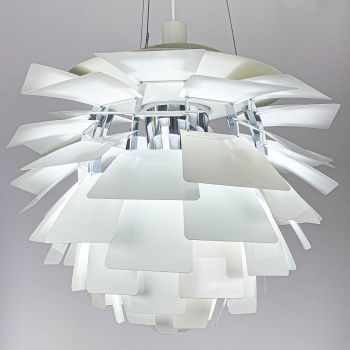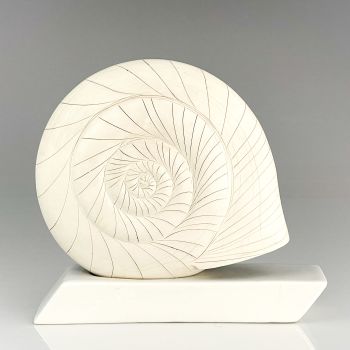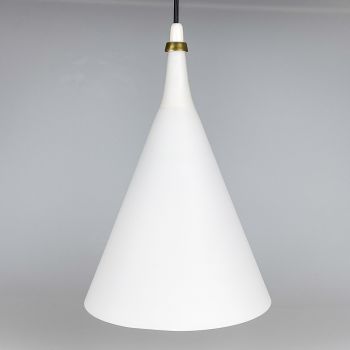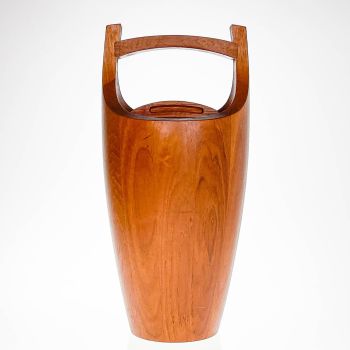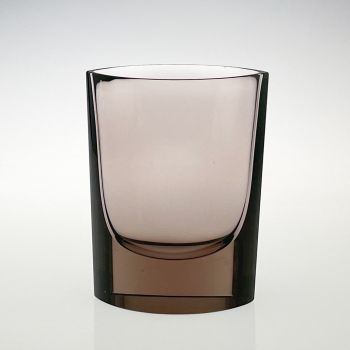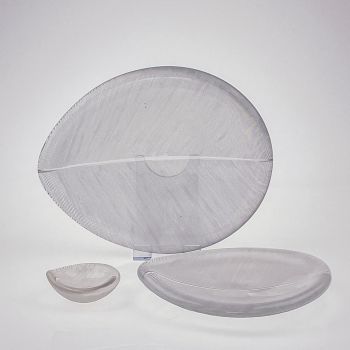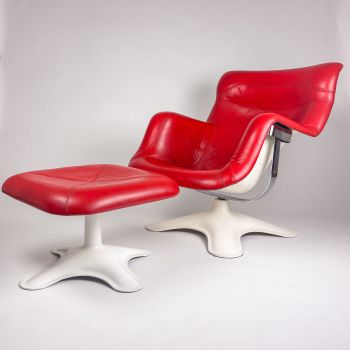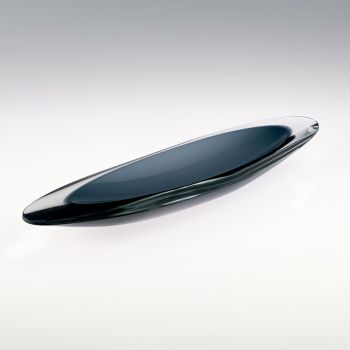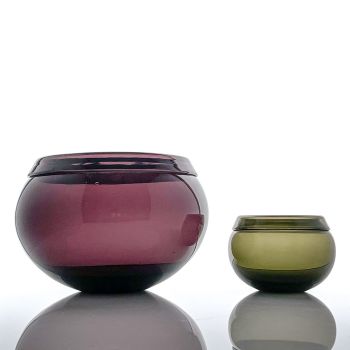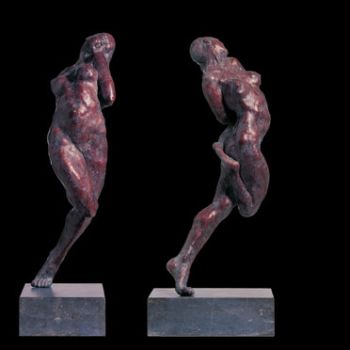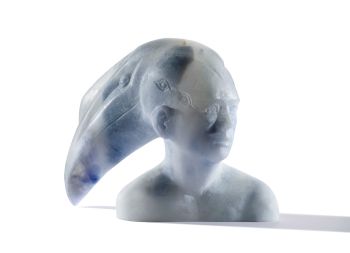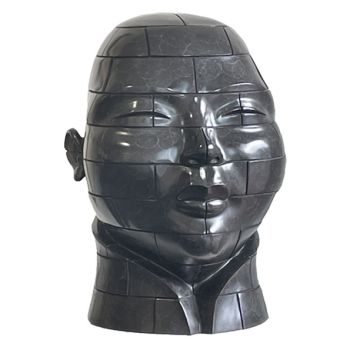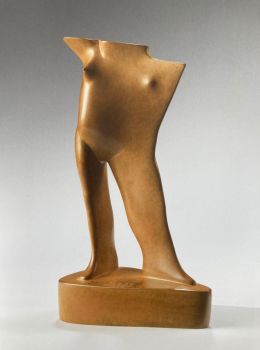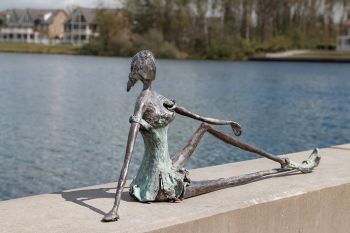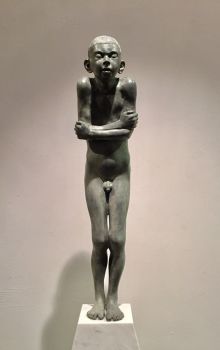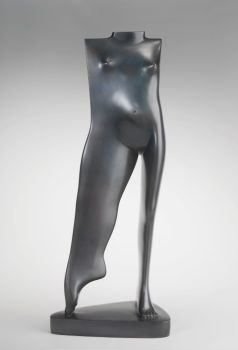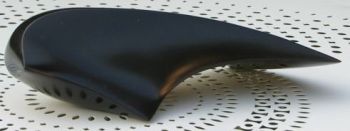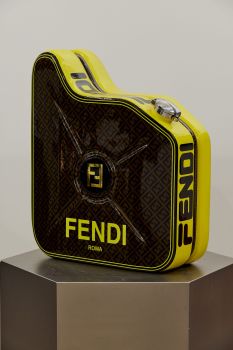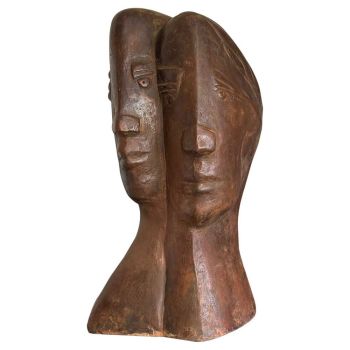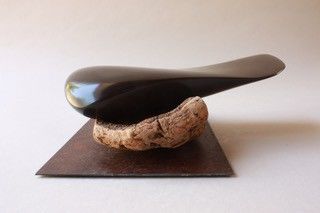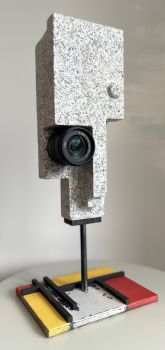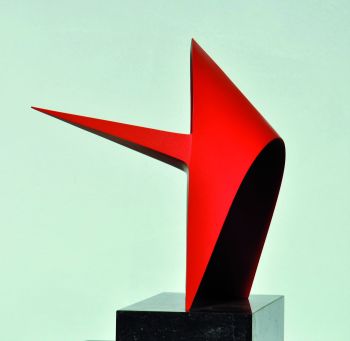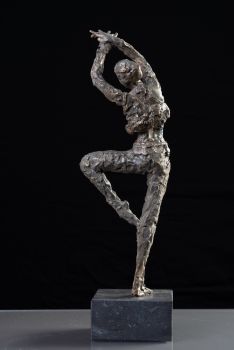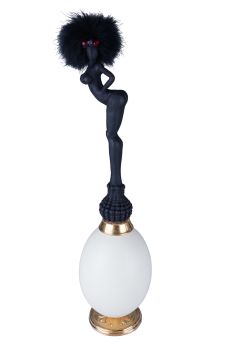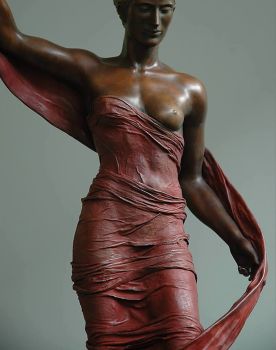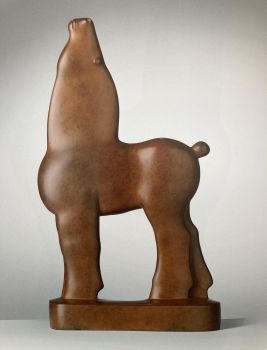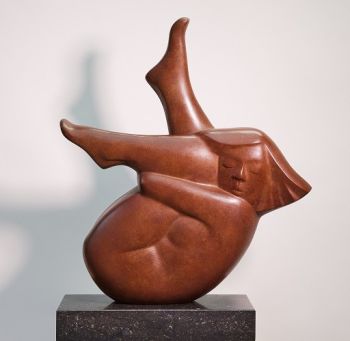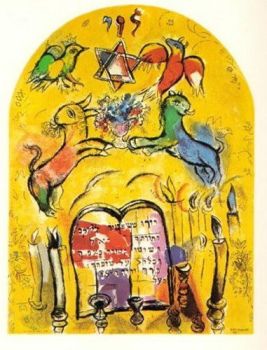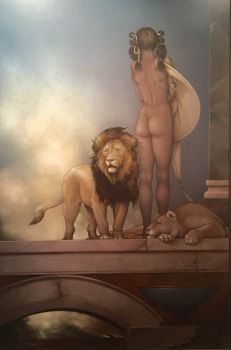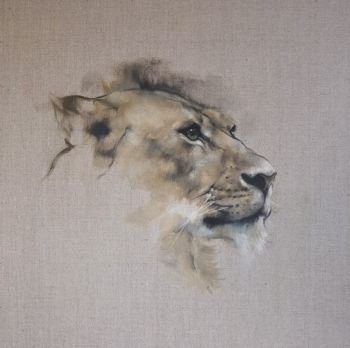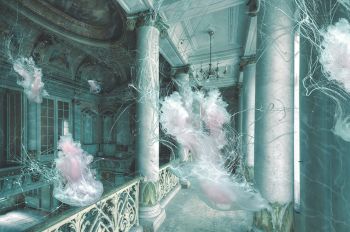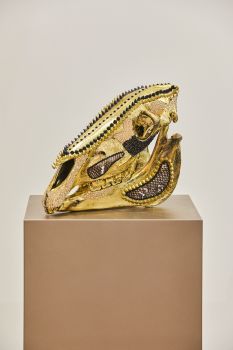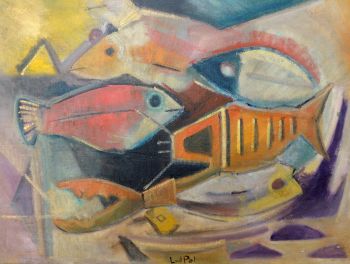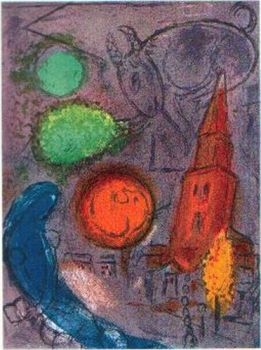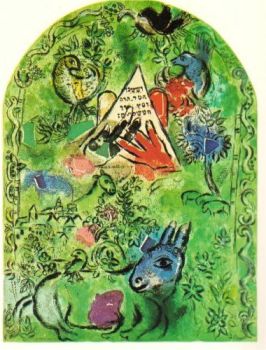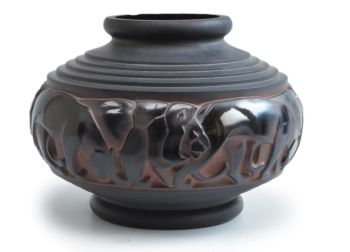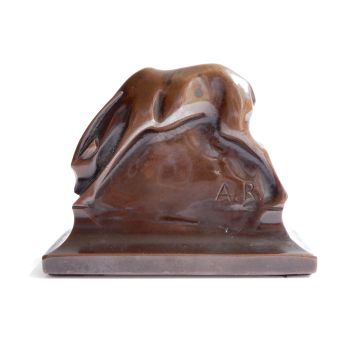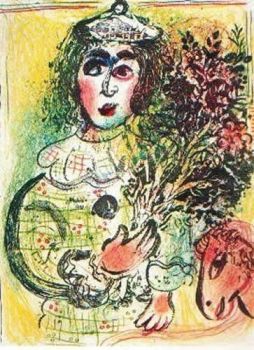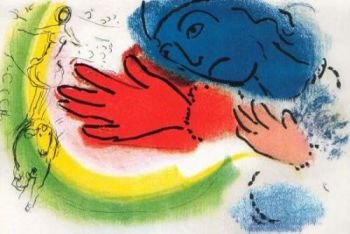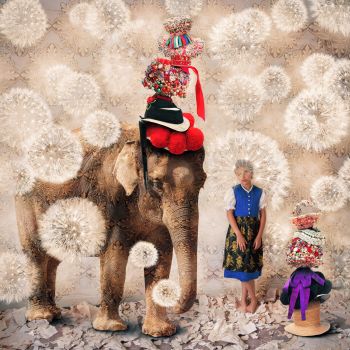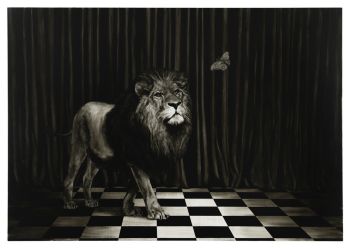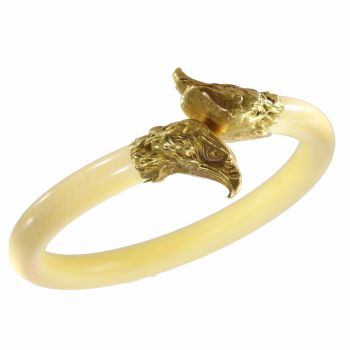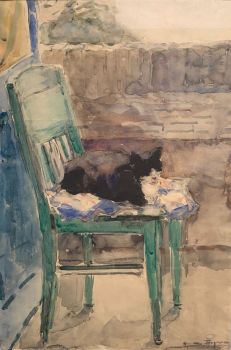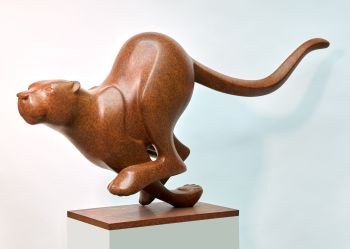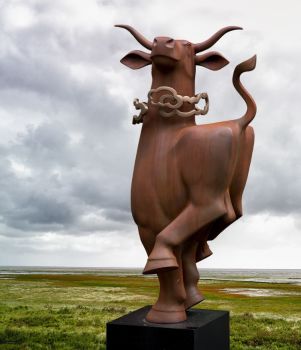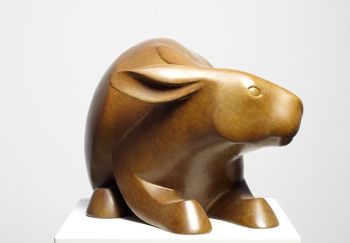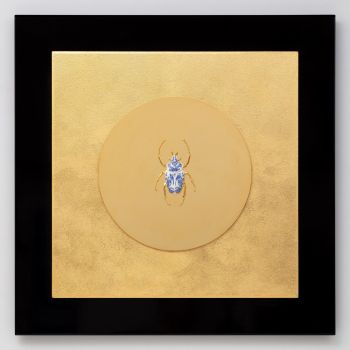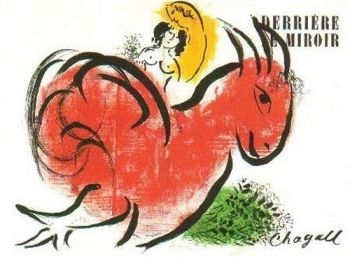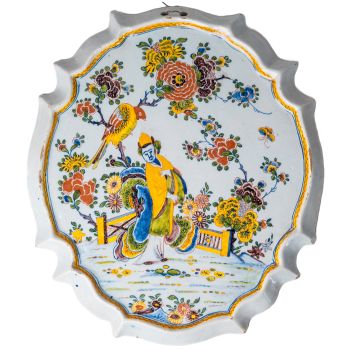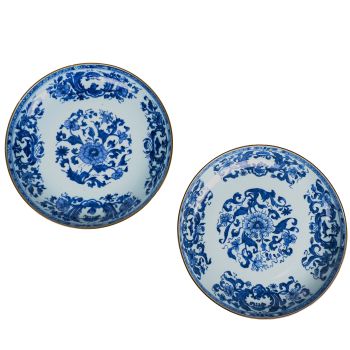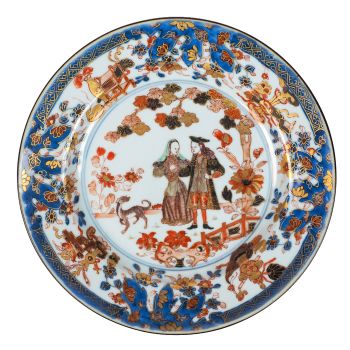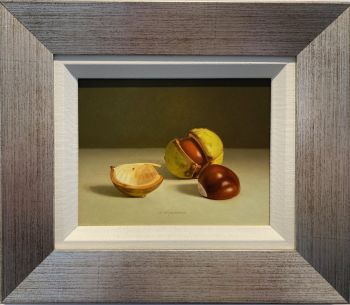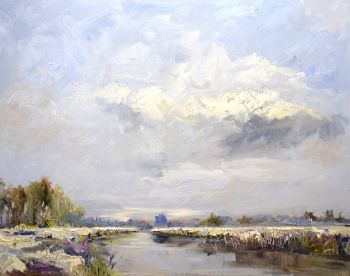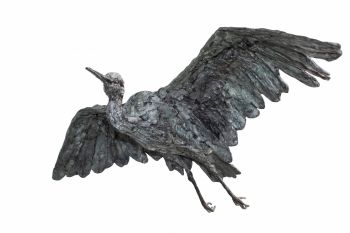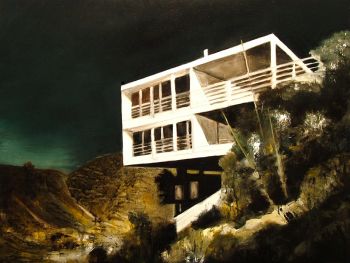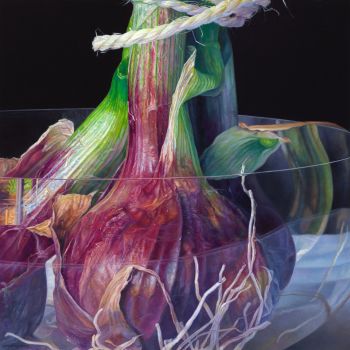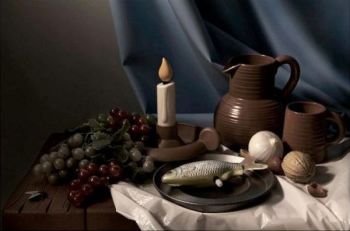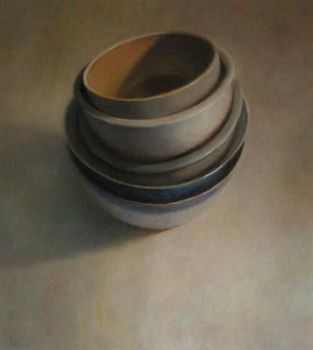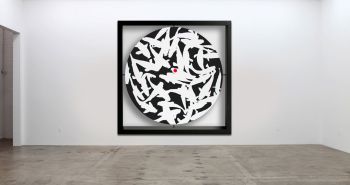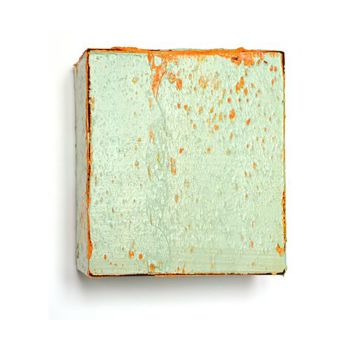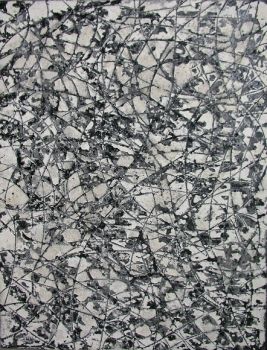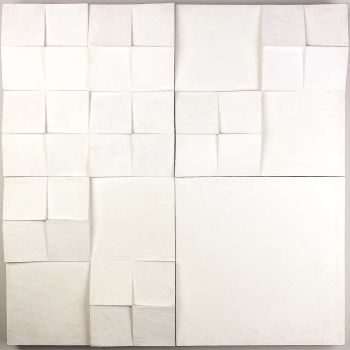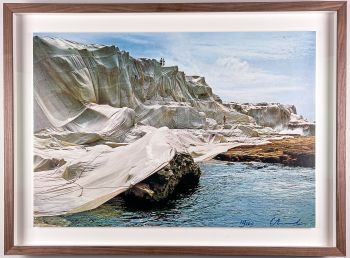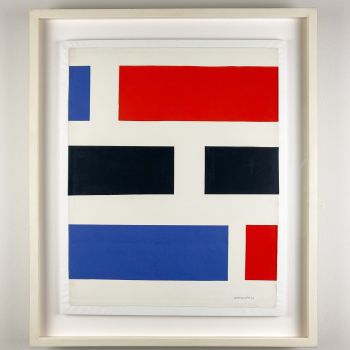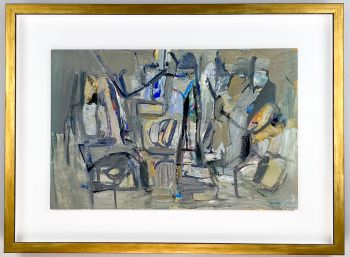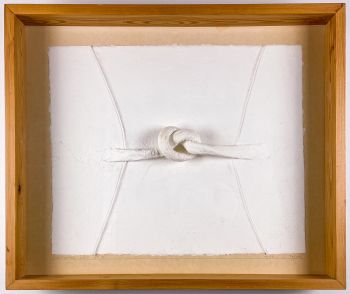Two glazed stoneware sculptures of Pinguïns – Rörstrand Sweden circa 1955 1951 - 1960
Gunnar Nylund
SteenGlazuurHoutSteengoedVerf
27 ⨯ 12 ⨯ 17 cm
ConditionVery good
€ 1.250
Van Kerkhoff Art
- Over kunstwerkTwo stoneware sculptures of a Emperor-pinguïn mother and child, finished in several shades of sandcoloured and brown glazes on lacquered ashwood bases.
Gunnar Nylund was particular know for his animal figures with beautiful experimental glazes. The larger examples and sculptures of exotic animals, are especially sought after.
This set of sculptures was designed by Gunnar Nylund and executed by the Swedish ceramics factory Rörstrand in the 1950’s.
They are both fully signed underneath: R with 3 crowns (Rörstrand) – GN (Gunnar Nylund) – Sweden.
About Gunnar Nylund
Gunnar Nylund (1904-1997) was a Swedish artist, ceramist and sculptor most known for his work for the Swedish ceramic manufacturer Rörstrand.
He was born in Paris to a Danish mother and a Swedish-Finnish father, both artists. His mother Fernanda Jacobsen-Nylund was a ceramist and his father Felix Nylund a sculptor. He grew up in Helsinki and moved to Copenhagen in 1917. In Denmark he received his education as an architect at the Royal Danish Academy of Fine Arts in the 1920’s. In 1929 together with Nathalie Krebs he started a ceramics workshop Nylund og Krebs that later was renamed to Saxbo.
In 1931 Nylund started working for the ceramics manufacturer Rörstrand in Lidköping in Sweden, becoming Rörstrand’s artistic director in 1937 and he continued to work there in this position until 1956. In this period Nylund became well known for his innovative feldspar glazes – popularized by renowned ceramists Berndt Friberg and Carl-Harry Stålhane – and his glazed stoneware animal sculptures.
After his time at Rörstrand he became artistic director at the Strömbergshyttans glassworks in Hovmantorp, Sweden and in the early 1960’s worked for the Nymölle Keramiska Fabrik in Lyngby, Denmark where he started producing stoneware.
Nylund crafted some 30 reliefs and sculptures commissioned for public spaces and many of his sculptures are part of museal collections ie: The National Museum in Stockholm, the Sèvres museum in Paris, the Röhsska museet in Gothenburg, the Ateneum museum in Helsinki and the Danish Museum of Art & Design.
Marked
Both marked underneath the base: Rörstrand – R (Rörstrand) with 3 crowns – GN (Gunnar Nylund) – Sweden
Execution
Rörstrand, Sweden 1951-1960
Condition
These sculpture are in very good condition. No cracks or chips.
Lacquered ashwood base included.
Literature
Mel Bryans – The Design Encyclopedia p. 535
Dimensions
Height 27,5 & 16 cm (including base)
Width 12 & 8,5 cm
Depth 17 & 9 cm
Weight 1620 grams (combined) - Over kunstenaar
Gunnar Nylund (1904-1997) was een kunstenaar, ontwerper en beeldhouwer van Deense en Finse afkomst die voornamelijk in Zweden werkte. Hij is een echte pionier op het gebied van decoratieve kunst uit het midden van de eeuw en wordt beschouwd als een van de belangrijkste keramisten van de 20e eeuw. Hij is vooral bekend vanwege zijn werk met de zeer beroemde Zweedse keramiekfabrikant Rörstrand.
Dankzij zijn artistieke ouders kwam Nylund op jonge leeftijd in aanraking met verschillende kunstvormen. Deze blootstelling droeg in hoge mate bij aan zijn multidisciplinaire vaardigheden en kwam zijn gevarieerde carrière binnen de decoratieve kunsten duidelijk goed van pas. Hoewel hij aanvankelijk architectuur studeerde in Kopenhagen, verliet hij deze studies om een vaste aanstelling te aanvaarden bij de porseleinfabriek Bing & Gröndahl. Daar ontmoette hij de Deense keramiekkunstenaar Nathalie Krebs, met wie hij zijn eigen innovatieve assortiment en later de werkplaats 'Saxbo' in 1930 zou ontwikkelen.
Zijn experimenten met nieuwe vormen maakten grote indruk op Rörstrand, die hem in 1932 tot 1955 aanstelde als artistiek directeur. Na deze periode nam Nylund de rol op zich als artistiek directeur van Strömbergshyttan glasfabriek terwijl hij nog steeds freelance als keramisch ontwerper. Hoewel Nylunds oeuvre in glas veel minder is dan dat in keramiek, is het duidelijk dat hij ook uitblonk in het medium door tijdloze elegante vazen in prachtige kleuren te creëren.
Net als veel van zijn bekende tijdgenoten wordt het werk van Nylund gekenmerkt door een verkenning van moderne vormen en technieken naast zijn gladde, matte glazuren en prachtige ingetogen kleuren. Zijn revolutionaire steengoedvazen zijn daar een mooi voorbeeld van, waarbij hij chamotte, een ruw kleimateriaal, vermengd met boetseerklei gebruikte. Dit materiaal zorgde ervoor dat objecten niet instortten terwijl ze werden gemaakt, waardoor fijnere, fijnere vormen mogelijk waren.
Naast steengoed en glaswerk is Nylund ook een ervaren beeldhouwer die de opdracht kreeg om veel werken te maken voor openbare ruimtes, theaters, bibliotheken en banken. Zijn werk is ondergebracht in tal van Zweedse musea, waaronder het Nationaal Museum in Stockholm, maar ook in diverse andere zoals het Deense Museum voor Kunst & Design, het Ateneum Art Museum in Helsinki en het Nationaal Keramiekmuseum van Sèvres in Parijs.
Bent u geïnteresseerd om dit kunstwerk te kopen?
Artwork details
Related artworks
- 1 - 4 / 4
Børge Mogensen
Teak wood “dropleaf” desk – Søborg Møbler, Denmark circa 19551950 - 1960
Prijs op aanvraagVan Kerkhoff Art
1 - 4 / 24- 1 - 4 / 24
Samuel Dejong
Anatomia Blue heritage II Goliath Beetle closed BGG2019
Prijs op aanvraagVilla del Arte Galleries
1 - 4 / 24- 1 - 4 / 24
- 1 - 4 / 12







